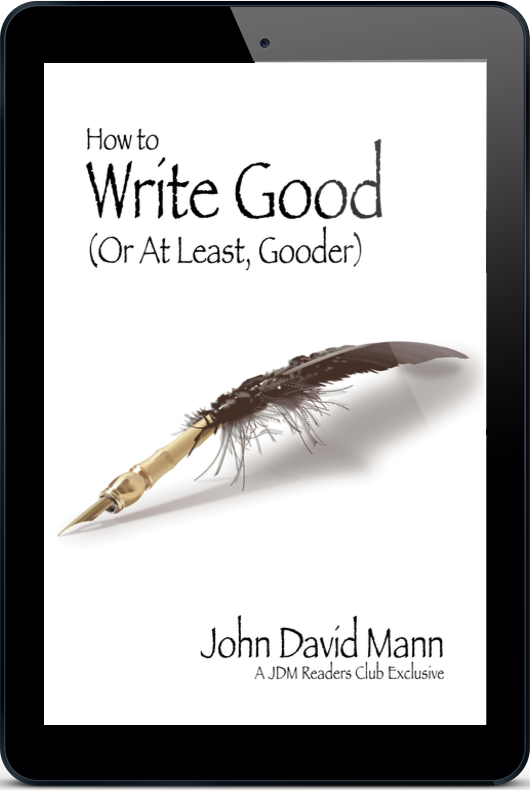You and I have a lot more in common than you might think. We are both involved in the same act of magic.
I’ve been ruminating lately about what it’s like to write fiction. I’ve spent most of my life not being a published writer, so this whole “author” thing is relatively recent. For me, it still has that new-car smell. I expect it always will.
(I know, I know: chances are good that you, reading these words, are not a writer. Not to worry: we’ll get to the what-we-have-in-common part soon enough, I promise!)
A bunch of the books I’ve done so far have been what you call non-fiction: the author informing you about a topic. Sort of like a lecture, hopefully an engaging one; a TED talk on paper. Flash Foresight, Take the Lead, Code to Joy, The Secret Language of Money, Total Focus, and so forth. (Of course, I’m typically the coauthor, that is, the one organizing the other guy’s expertise onto those pieces of paper.) For me, those books are like magazine articles: each one an organized thesis, just longer.
But those aren’t what I’ve been ruminating about. What’s got me hooked is the stories.
The books you make by creating a person.
Last week I posted the first few lines of a someday piece of fiction. This, the business of creating a brand new person out of words, absolutely captivates me.
Strictly speaking, I haven’t actually written what you’d properly call “fiction.” Really, though, I have. Because to me, memoirs (Funny Side Up, Real Leadership, The Red Circle, Among Heroes, I Should Be Dead) may be about someone’s real flesh-and-blood life, so you would be justified in saying they’re not really fiction — but when you write a story like that, you have to make up the character.
I don’t mean that you make up things that aren’t true. I mean that you have to make up the story that is true.
I hope that makes sense.
It’s like taking the lead role in a Hollywood biopic: you have to figure out who that person is, and then put them on. Like a suit of clothes, only bone-deep. Become them.
And then, create them.
Let me share with you someone I just invented with a single eleven-word sentence.
I’m working on the next Go-Giver book with my coauthor Bob Burg, and was trying to figure out how to start. Our first chapter is told from the point of view of a young man named Jackson Hill, who’s trying to make a deal that could save his struggling pet food business from going under. Here were my first few stabs at an opening line:
Jackson Hill didn’t want his business to fail.
Jackson Hill’s business was about to go under.
Jackson Hill’s business was going to the dogs. [ha ha]
Jackson Hill’s business was struggling.
Jackson Hill was about to go bankrupt.
None of these worked, nor did a dozen others like them. They were all too blunt, too literal. Nothing about them made me feel like I wanted to read further, to know more, to find out what was really going on.
Then I thought about our guy, and about his situation. If this were a play, what would we see when the curtain went up for the first time? We would see the guy, sitting in a chair, waiting for his appointment, waiting to see the person with whom he’s going to try to make this deal that could save him. Waiting to give his pitch, you might say, hoping to strike the deal of a lifetime.
But there’s something else going on in this picture. Because here’s something I know about our young Jackson Hill: he tends to self-sabotage. He’s smart, ambitious, and talented, and he has that most critical of entrepreneurial skills: persistence. But he is, as the expression goes, “nice to a fault.” He hates conflict, avoids it at all costs, and tends not to stick up for himself in a clinch. He doesn’t have much posture, as they say in business. The archetypal nice guy who finishes last.
Ah. Now I got it. As much as Jackson needs this meeting to go his way, and as hopeful as he is about it, deep down inside he already fears (knows?) that no, he probably will not emerge from the meeting victorious. Which, in fact, he won’t.
Which gives me my first line:
Jackson Hill looked like a man waiting to see the executioner.
Ahhh.
This emergence, this sudden burst of existence, this explosion of an entirely new personage popping up out of a freshly cracked-open shell, sends chills up and down my spine. I think, “So this is why novelists write.”
Here’s the startling thing about this: All at once, Jackson is real. I don’t mean he’s a flesh-and-bones person who has breathes oxygen and bleeds red blood. He’s an invention on paper (I’ve scribbled him just now on a blank pad), composed of words. I know that. But still: he’s real.
Jackson is just like you.
You are the central character of a story that you are making up.
And that’s what you and I have in common. We’re making this up.
If you think you’re not writing your life, that your life is “just happening,” then think again. Your life is not simply a series of chemical reactions. It’s a creation. It’s something you are inventing, conjuring up out of whole cloth. Out of thin air.
My favorite novel, Kate Atkinson’s Behind the Scenes at the Museum, opens with a two-word sentence that blurts itself out the moment her character, Ruby Lenox, is conceived:
I exist!
And so she does. My character’s debut is not quite as dramatic, but it gets the job done. Of course, it’s only eleven words. I’ve got something like 23,899 to go, for a book that won’t see daylight until a year from now.
Yet writing that sentence made me feel incredibly alive.
Why? I think, because it reminded me of who I am and what I do. I make up my life. Invent it out of thin air.
Just like you do.



When you are ready to write someone’s extraordinary story (and when he’s ready to have it written), I have the very guy for you. I’ve already told him I have a ‘ghost writer’ – if that isn’t an insult – who will tell his story wonderfully. I believe he is changing the world.
Love to you and Ana.
Hey Carol – no insult at all, though my dance card is awfully full these days; shoot me an email about this and, as we say in my home state of New Jersey, wi’ll tawk.